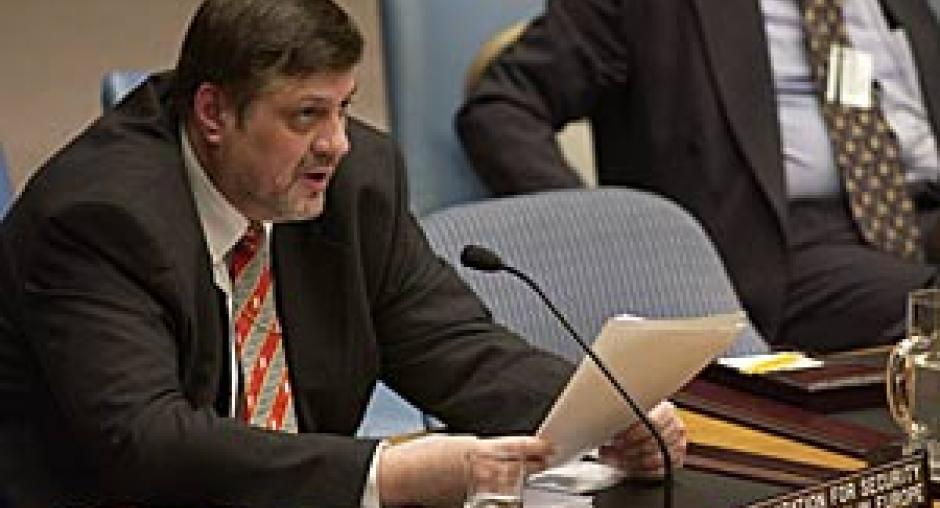OSCE Secretary General outlines Organization's response to new threats to security

NEW YORK, 11 April 2003 - OSCE Secretary General Jan Kubis outlined the 55-nation security organization's response to new threats to peace and security at a meeting at the United Nations Security Council on Friday.
Addressing a high-level meeting on "The Security Council and Regional Organizations: Facing the New Challenges to International Peace and Security," he said Foreign Ministers from OSCE participating States had agreed at their Porto Ministerial Council in December 2002 to establish an Annual Security Review Conference.
They also decided to develop an OSCE Strategy to Address Threats to Security and Stability in the 21st Century.
"The strategy will make an inventory of threats to security and stability in the OSCE area and analyse their changing nature and main causes, setting out how the OSCE can prevent or counter threats to security and stability and contribute to relevant international efforts," Ambassador Kubis said.
The Porto Ministerial Council adopted an OSCE Charter on Preventing and Combating Terrorism which reiterated the core principles and approaches that guide the Organization's actions in the fight against terrorism, in support of the UN-led effort.
Other capacities built up by the OSCE in recent years to meet new security challenges included policing and police training, border security, and combating trafficking, the OSCE Secretary General said. "Further strengthening the OSCE's work in these areas is an important priority for the OSCE 2003 Netherlands Chairmanship-in-Office," he said.
"The OSCE, like the rest of the international community, is becoming more aware that strengthening the security of States has much more to do with sustaining the rule of law and preventing or dealing with crime, corruption and human rights violations than has hitherto been the case," Ambassador Kubis added.
The OSCE, with its comprehensive concept of security and operational flexibility, had shown itself to be an effective partner for the United Nations and other international organizations involved in complex peace and crisis management operations.
The Organization is a unique forum for political and security dialogue and co-operation among participating States but it is also action-oriented and highly operational, with nearly 4,000 international and local staff working in 19 field missions.
